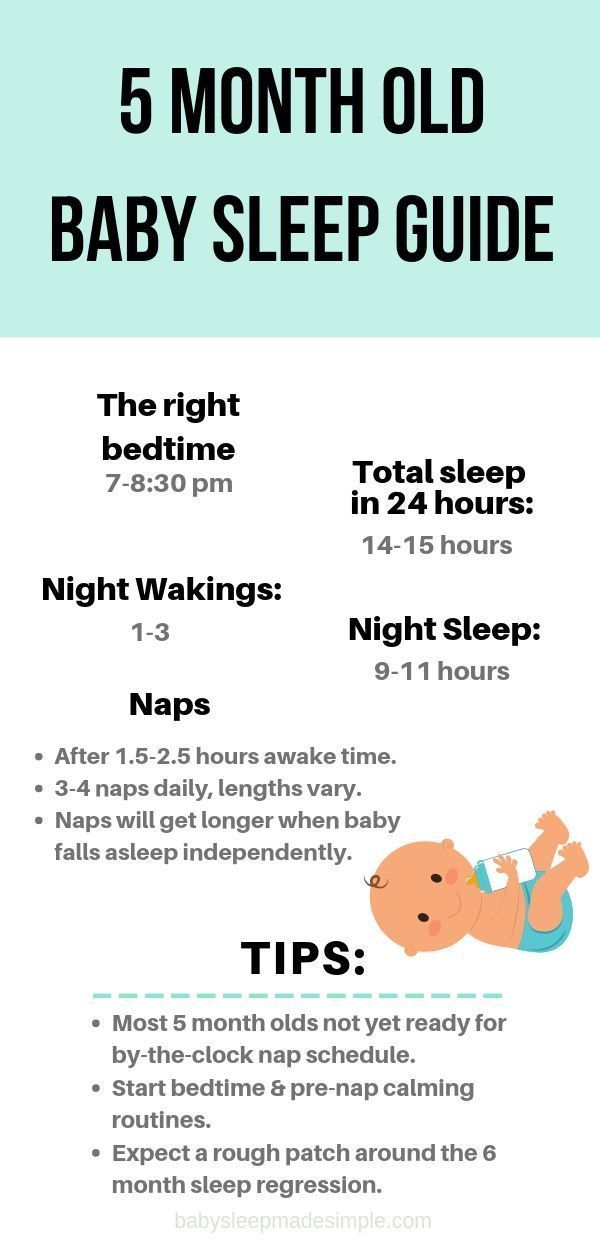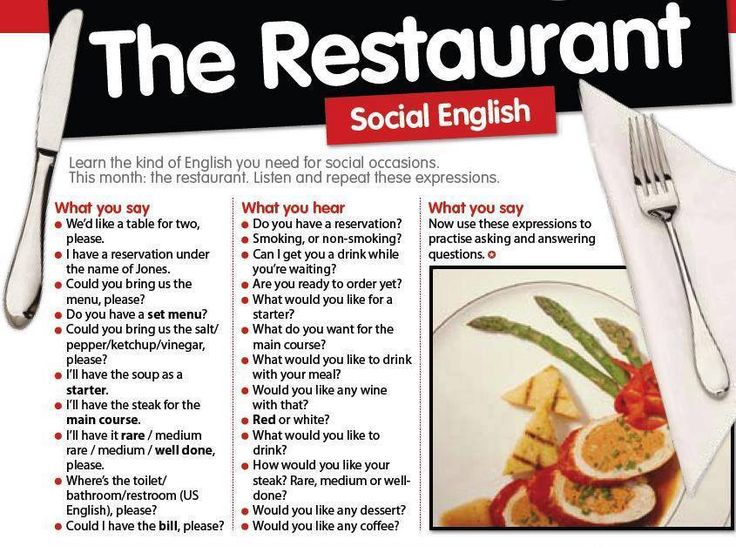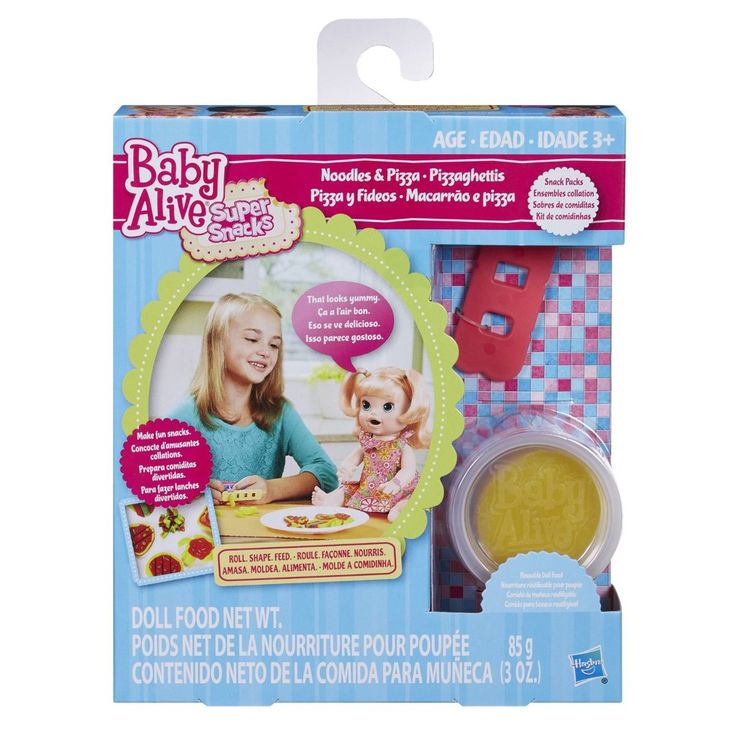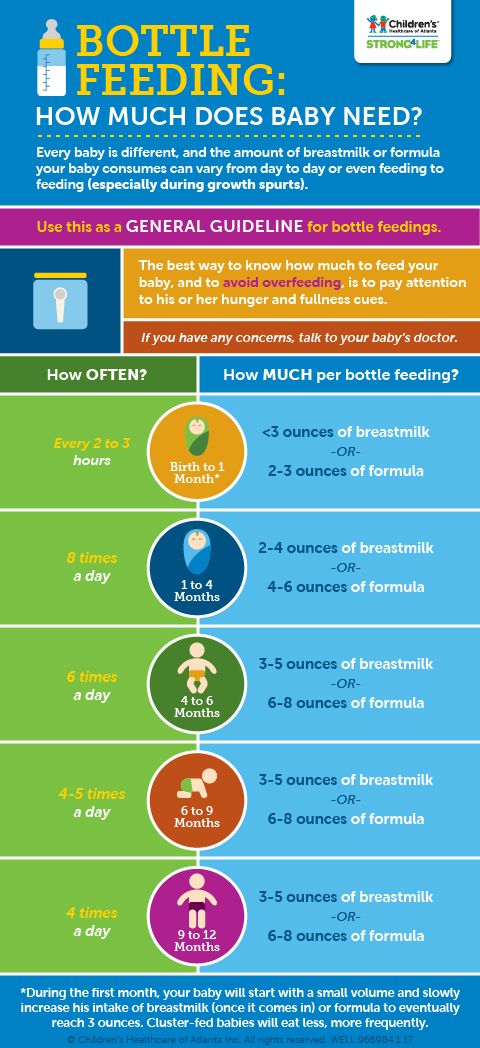4 month old baby still waking for night feed
Causes and expectations by age
The magic phrase “sleeping through the night” definitely casts a spell over us as parents, to the point where parents can start to be concerned if their baby isn’t “sleeping through” by a certain age. The reality is, there are many factors that contribute to your baby’s ability to sleep well at night.
In this article, we are drawing upon our vast experience and interaction with thousands of babies to share what we consider to be some realistic expectations around your baby’s night sleep, as well as some very common causes of night waking at different ages.
I'm going to add a wee disclaimer here, because articles of this nature are always met with very differing (and sometimes critical) opinions: baby sleep, as a topic, is a real can of worms. People parent in so many different ways and we are not here to judge or force you one way or another. We are here to offer help, from our position of experience, if you'd like help.
If you are happy with your baby's night sleep or don't believe babies can/should sleep through the night, the following article probably isn't for you. However, if you'd like some help with possible reasons for why your baby wakes at night, read on!
In this article:
- Night wakes between 0-3 months of age
- Night wakes between 3-6 months of age
- Night wakes between 6-8 months of age
- Night wakes between 8-12 months of age
- Other common causes of night waking
You CAN have a better night’s sleep!
Whatever your current sleep situation, we've got the tools, the information and the personalised support to help you and your little one reclaim those nights.
Join Now
Night wakes between 0-3 months of age
Feeding
This is a huge period of development in your baby’s life - the biggest, actually, they’ll ever have! The amount of physical and mental growth that happens in these few months is massive, so they do need lots of fuel for all this growing.
At this point your baby will be entirely milk-fed (formula or breast) and milk is digested much quicker than solid food, so your baby will be feeding every few hours in the day and you can certainly still expect night feeds too.
Settling & Sleep Environment
At this age babies aren’t really capable of developing “bad” sleep habits, so don’t stress too much about how you’re getting them to sleep or that they’re feeding in the night. It’s really only when you reach the 4 month sleep regression that you will want to start thinking about your baby's sleep associations.
For any night wakes under 3 months, assume hunger and feed your baby. Make sure these feeds are done in the dark, change their nappy only if absolutely necessary and avoid stimulating your baby or they will be very hard to settle back to sleep!
We recommend playing white noise all night long and definitely keep it going during these night feeds. Feed your baby in the room they're sleeping in so there is no sudden temperature change. We also recommend that babies this age are swaddled to suppress their startle reflex. Keeping your baby tightly wrapped for their night feeds will also help them stay in the sleep “zone” and they’ll be easier to settle again.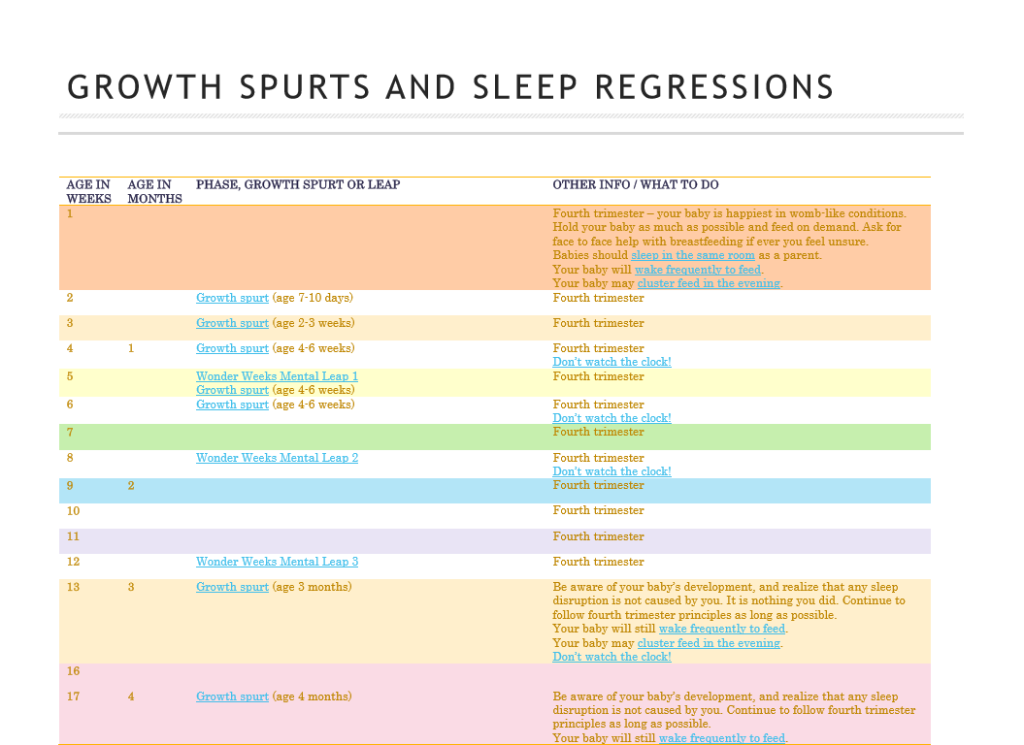
If you have a windy baby make sure you burp them really well after their feeds or they might wake again shortly afterwards and can be more difficult to settle.
Naps
If your baby is waking a LOT in the night or staying awake for long periods it is often attributed to what is happening in their day and with their naps. They might be having too much or too little day sleep, meaning that they are under or over tired. See THIS article for more information about how your baby's naps can impact their night sleep.
Newborn babies can also sometimes have their days and nights around the wrong way, where they happily sleep all day, then stay awake all night! It's not difficult to reverse this day/night confusion simply by having a bit more control over their naps during the day.
If you need a hand with this, we have daily, age-appropriate sleep schedules in our Little Ones App that you can use to guide you. These schedules help to ensure your baby is getting the perfect amount of sleep during the day for their age, so that they can settle and sleep well overnight too.
Night wakes between 3-6 months of age
Feeding
Between 4-6 months your baby may start waking more in the night for milk, genuinely hungry, even if they can self-settle and had previously been sleeping through the night. This is often a sign they are getting ready to start solids, as their calorie intake from milk alone isn’t quite getting them through the night anymore.
Milk is still the most important food for a baby until 8 months of age, however, milk is digested very quickly and doesn't sustain your baby for long periods. So if your baby is breastfed or bottle-fed and you don't want to start solids until 6 months, you will need to assume your baby's overnight wake is due to hunger and feed them straight away.
If you have started solids and your baby is still waking, you may need to increase their solids intake. We would advise you to refer to health guidelines or talk to your GP about starting/increasing solids if you think your baby is ready.
We would advise you to refer to health guidelines or talk to your GP about starting/increasing solids if you think your baby is ready.
If your baby uses a pacifier and overnight you are resettling them with a pacifier instead of feeding, be careful. A pacifier can mask the fact that your baby is actually waking because they are hungry. When a baby sucks a pacifier, their brain thinks they are getting food so they may go back to sleep, but then wake hungry again shortly afterwards.
If your baby is waking frequently to have the pacifier replaced, try feeding them at their first wake to see if they are actually waking hungry. If they continue to wake frequently, the pacifier could actually be causing more problems than it solves. You can read more about this HERE.
Settling
At this age sleep gets a bit trickier as babies experience a maturation in their sleep patterns and can start waking fully between sleep cycles (every 45 minutes in the day and every 2 hours overnight).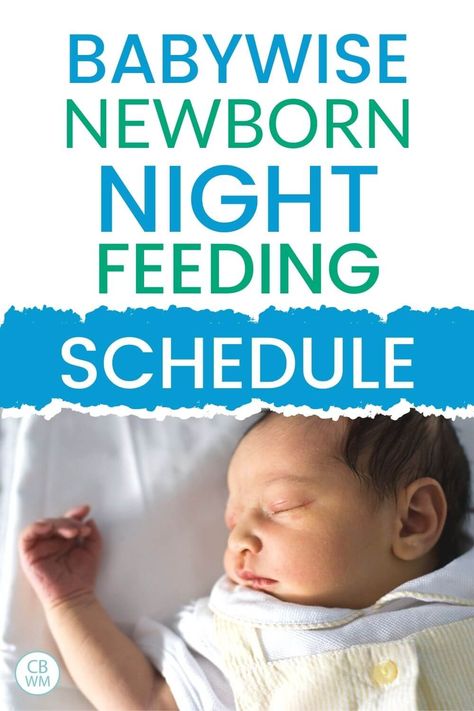 Now, your baby can come to rely heavily on the method used to settle them to sleep (rocking, feeding pacifier etc.), and they will need that same method to go back to sleep between cycles.
Now, your baby can come to rely heavily on the method used to settle them to sleep (rocking, feeding pacifier etc.), and they will need that same method to go back to sleep between cycles.
This means night waking can definitely be caused by a settling issue rather than hunger. However, this can be hard to work out if your baby is not yet able to go to sleep independently for their naps and at bedtime. Once your baby is able to self-settle to sleep, it's much easier to distinguish between your baby waking out of genuine hunger, versus a need to be fed back to sleep.
If your baby needs some help learning how to self-settle, our Sleep Programs have several gentle methods you can use to guide your baby towards this skill. A lot of babies are capable of sleeping through the night, 7pm-7am, in this age bracket, if all their ducks are in a row!
Night wakes between 6-8 months of age
Feeding
Some babies will still need a milk feed in the night at this age. Babies who started solids after 6 months or who are doing baby-led weaning are generally not getting enough calories from solids (or protein at the lunch meal) yet to help them get through the night.
Babies who started solids after 6 months or who are doing baby-led weaning are generally not getting enough calories from solids (or protein at the lunch meal) yet to help them get through the night.
Naps
Between 6-8 months babies will transition from 3 naps, down to 2 naps a day. Babies who are still having that third late afternoon nap can begin to wake overnight because they are under tired and ready to drop that nap now. Read THIS article to find out more about navigating this nap transition.
Habit wake
Beyond 6 months of age, babies can begin to form habit wakes - these typically happen at the exact same time every night. If you are feeding your baby multiple times a night, yet you think they surely don’t need the milk, they may be waking out of habit rather than hunger.
In som cases, what can end up happening is that a baby takes most of their milk calories during the night and consequently, feeds less during the day. This turns into what we call reverse cycling - when they have their feeding times/quantities the wrong way around! Read THIS article to find out how to switch things back around.
Night wakes between 8-12 months of age
Feeding/Habit wake
Babies this age are far less likely to wake out of genuine hunger if they are well established on solids. By now, your baby should be also drinking small amounts of water during the day to keep them hydrated. From 8 months of age, solids can be offered before milk feeds but you’d still aim to have 3 good milk feeds a day. Waking overnight at this age is more often due to a settling issue or habit wake, rather than actual hunger.
Naps
As your baby approaches 12 months of age, they will get ready to transition down to one nap a day. This nap transition typically occurs between 12-15 months of age. If your baby is still having quite a long morning nap, this can have a knock-on effect with their second nap of the day and their overnight sleep. Our Sleep Programs can help you to prepare your baby for this transition, by gradually reducing the length of their morning nap as they get older.
Beyond 12 months, if your toddler is still having 2 naps a day, or is napping for longer than 2 hours across the day, it can definitely start causing more night waking because they're simply not tired enough to sleep through the night.
Other common causes of night waking
If you can rule out hunger, here are some other common causes of night waking in babies of all ages:
- They are too hot or cold
- They don’t have white noise playing all night and are being woken by environmental or household noises
- They are sick
- They can’t self-settle (beyond 4 months old)
- They aren’t swaddled (for babies younger than 5 months, who aren't rolling yet)
- Their sleep environment is too stimulating - ie there is a nightlight or a musical toy
- They have a medical condition such as tongue tie, reflux or allergies
- They have had too much or too little day sleep
- Separation anxiety in babies going through big changes or developmental leaps
- During particular periods in their development babies do wake simply to "practise" their new skills (crawling etc).
 This is common at 8 months and 12 months.
This is common at 8 months and 12 months.
So there you have it... the most common reasons why babies wake at night based on our experience working with thousands of families all over the world.
If you're feeling exhausted by your baby's night wakes and would like a helping hand, take a look at our Little Ones App. Our trusted, evidence-based sleep solutions can help you and your baby to have a better night's sleep in no time!
Your Baby's Sleep Journey
Download our guide to what to expect in the first few years of your child's life.
Get your free sleep chart
___________
Bibliography
Coons, S., & Guilleminault, C. (2008). DEVELOPMENT OF CONSOLIDATED SLEEP AND WAKEFUL PERIODS IN RELATION TO THE DAV/NIGHT CYCLE IN INFANCY. Developmental Medicine & Child Neurology, 26(2), 169–176. https://doi.org/10.1111/j.1469-8749.1984.tb04428.x
Dewar, G. (2017, January 2). Newborn sleep patterns: A survival guide. PARENTING SCIENCE. https://parentingscience.com/newborn-sleep/
PARENTING SCIENCE. https://parentingscience.com/newborn-sleep/
Dewar, G. (2018, January 2). Baby sleep patterns: An evidence-based guide. PARENTING SCIENCE. https://parentingscience.com/baby-sleep-patterns/
Dewar, G. (2020, July 17). Baby sleep deprivation: How to tell if your baby isn’t sleeping enough. PARENTING SCIENCE. https://parentingscience.com/baby-sleep-deprivation/
Iwata, S., Fujita, F., Kinoshita, M., Unno, M., Horinouchi, T., Morokuma, S., & Iwata, O. (2017). Dependence of nighttime sleep duration in one-month-old infants on alterations in natural and artificial photoperiod. Scientific Reports, 7(1). https://doi.org/10.1038/srep44749
4 Month Old Waking Every 3 Hours to Feed
Is your 4 month old waking every 3 hours to feed at night? Learn what to do when your baby wakes up before feeding time from hunger or habit.
After 4 months of sleep deprivation, I wanted nothing more than to finally have a full night of sleep. Even waking up once would’ve been a welcome change.
Even waking up once would’ve been a welcome change.
But nope, my little guy was still waking up every few hours.
He was always high on the percentile range for weight gain, so I knew he was eating enough (whether during the day or at night). But with frequent night wakings, I was wiped out and wasn’t getting much sleep. And since I was breastfeeding, that meant I was the only one who could feed him every time he woke up.
When your 4 month old is waking every 3 hours to feed
Perhaps you can relate all too well. Four months later and your baby is still waking up every 2-3 hours on the dot to eat. Even then, he’ll only take a couple of ounces or feed for a few minutes at a time, no matter what you try. You’ve even tried feeding him solids or adding rice cereal to his bottles, but that hasn’t helped, either.
Or maybe he used to have longer stretches of sleep—a whopping eight hours before a middle of the night feed. But these days, he’s suddenly getting up wanting to eat every three hours (30 minutes at a time, no less).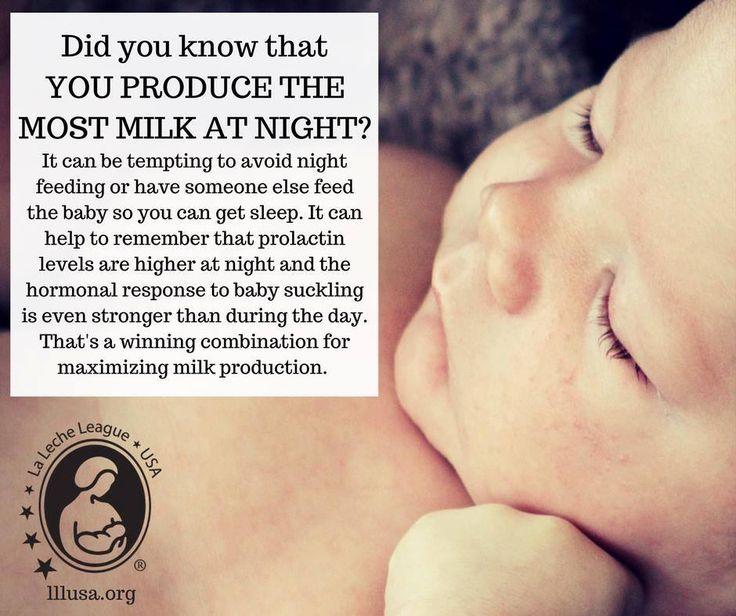 To top it off, you don’t know if he’s waking from hunger or habit. No wonder you feel so sleep-deprived.
To top it off, you don’t know if he’s waking from hunger or habit. No wonder you feel so sleep-deprived.
I hear you, friend. It’s hard not to wonder whether something’s wrong when your 4 month old is still waking up so often to feed in the night time.
The 4 month stage is tricky, for sure. You wonder whether your baby still needs help falling asleep or if he can start learning to do so on his own. You’ve been sleep-deprived for far too long, and your patience is waning this far down the line.
Thankfully, you can get past this challenging stage. With a few tweaks and changes, you can stretch his sleep longer than three-hour increments. Take a look at these tips below on what helped me the most, and hopefully they’ll work for you, too:
1. Put your baby to sleep in a different room
Do you wake up at the slightest sound your baby makes? Are her cries imprinted in your mind that you think you hear her crying when she’s not?
As a first-time mom, I’d bolt upright in bed the minute I heard my little guy so much as stir. Any little noise and I would wake up and assume he was hungry for a feed.
Any little noise and I would wake up and assume he was hungry for a feed.
But when I’d get up and check on him, he was still fast asleep. It turned out, he was making noises—loud ones, even—in the middle of his sleep. I woke up for no reason, and struggled to fall back asleep each time.
The worst was when he’d wake up because I had gotten up and made a ruckus. If I hadn’t heard his sounds or had let them be, he wouldn’t have been snapped out of his sleep and started crying.
If you’re in the same boat, one simple change you can make is to put your baby to sleep in a different room. You’re more likely to hear every little sound when she’s sleeping in the same room as you (yup, even with white noise on).
But by putting her to sleep in her own room, you’re less likely to wake and rile her up every time she makes a sound. Instead, she might fuss for a minute or so before soothing herself back to sleep. And if she really does wake up, she’ll let you know by crying.
And if you still want to keep an eye on her, you can use a baby monitor in the room, or leave your doors open. Either option can still tune you in to actual cries without picking up every tiny sound she makes.
What to do when your 4 month old baby won’t nap.
2. Encourage your baby to fall asleep on their own
Your baby may be waking up every 3 hours because he has grown used to feeding to sleep. This is especially true if he has a bad habit of falling asleep during feedings before bedtime or naps. After all, sucking is a comforting feeling to him, so it’s understandable that he tends to snooze during a feed.
The problem though is that he has learned to fall asleep this way—and only this way. Now, any time he stirs at night, he fully wakes up needing to be fed to go back to sleep (even if he may not be hungry).
So, how can you encourage him to learn how to self soothe and break that sleep association?
- Try not to rock him to sleep.
 Or if you do, limit it to a few minutes so that you can still put him down in the crib awake.
Or if you do, limit it to a few minutes so that you can still put him down in the crib awake. - Move the last feeding to the start of the bedtime routine so he has less of a chance of falling asleep while eating.
- Don’t let him fall asleep while feeding. If you do want to keep the feeding at the end of the routine, keep him from falling asleep. You can tickle him, burp him over your shoulder, change positions, or talk to him.
- Avoid comfort nursing if possible. He might be sucking without actually swallowing anything as a way to fall asleep. Check that he’s actually drinking by looking to see if his throat is moving, and if you hear a swallowing, gulping sound. If need be, a pacifier can allow him to suck while he falls asleep.
- Consider following a sleep training method. Check with your pediatrician to see if he’s ready to sleep through the night (about 11-12 hours straight).
Free resource: Want to learn more about teaching him to self soothe? Join my newsletter and grab 5 Mistakes That Keep Your Baby from Self Soothing below—at no cost to you. As one parent said:
As one parent said:
“Thank you so much for your material. It helped me a lot. My daughter sleeps by herself now on her bed without any fight.” -Johanna
3. Give a full feeding each time
Another reason not to feed your baby to sleep is that she may not be getting a full feed each time she eats. The less she eats at each feeding, the more likely she is to wake up hungry again, and the cycle continues.
If you’re breastfeeding, encourage her to empty at least one breast during each feeding. This also ensures that she gets both the fore milk and the hind milk each time. If she’s bottle-feeding, try to get her to take her usual amount of formula or expressed milk.
Should she start falling asleep, keep her awake as discussed above to encourage her to eat her full fill.
Similarly, try to get her to eat her full feeding not only at night, but during his wake time as well. The more calories she can consume in the daytime, the less often she might wake up at throughout the night. And lastly, you can offer a dream feed before you go to bed to top her off before you fall asleep.
And lastly, you can offer a dream feed before you go to bed to top her off before you fall asleep.
4. Try waiting it out
It’s all too easy to compare how your baby is sleeping to others, don’t you think? You might belong to mom groups with kids born in the same month as yours. Or you may have other children who never woke up this frequently as far as you can recall.
Reading about other babies’ nighttime sleep can make you feel like yours should be doing the same thing.
But sometimes, there’s a benefit to waiting and going with the flow. He may not be there yet, even if other newborns are sleeping in longer stretches. He might prefer eating small but frequent meals, and that’s simply who he is.
These frequent wake ups and extra feedings could be due to a developmental milestone like learning a new skill. He could be going through a sleep regression, especially with growth spurts. And eventually, nighttime feedings might get less frequent when he eats solids at every meal.
Yes, you can definitely take action to get him to sleep longer. But at the same time, try not to stress, especially if you sense that this is a temporary stage. You might be adding more grief than if you can simply go with the flow.
Conclusion
Waking up every 3 hours because your baby wants to eat is no easy task, especially after all this time. Thankfully, you can try a few tricks to stretch her sleep and possibly even sleep through the night.
Start by putting her to sleep in a different room so that you’re not waking up after every little sound she makes and assume she’s hungry. Encourage her to practice falling asleep on her own, like keeping her awake during feedings and putting her down drowsy but awake.
Make sure she gets a full feeding each time so that she’s satisfied and more likely to sleep longer. And lastly, try to relax and see what happens—this could simply be a phase or regression that’ll pass soon enough.
No more sleep-deprivation, friend! Now you and your little one can get the sleep you both need.
Get more tips:
- 6 Steps to Dropping Night Feeds
- Best Baby Sleep Books for Exhausted Parents
- Why I Regret Rocking My Baby to Sleep
- How to Stop Comfort Nursing at Night
- When Your Baby Keeps Peeing Through the Diaper at Night
Don’t forget: Join my newsletter and grab 5 Mistakes That Keep Your Baby from Self Soothing:
How to wean a child from night feeding, wean a child to eat at night
0-6 months
Article
5/5 2 reviews
A newborn baby eats at any time of the day, day or night. As the baby's digestive tract grows stronger, the interval between feedings gradually increases. Moms have a natural question: when and how should you stop night feedings so that the baby sleeps all night? nine0003
8 min. for reading Feb. 17, 2022
for reading Feb. 17, 2022
Contents
Should I feed my baby at night
How many nightly feeds does my baby need
- For breastfed babies, combination breastfeeders and babies with reflux
- Formula-fed babies
How to know if your child is ready to give up nighttime meals
How to wean a baby from night feedings: expert advice
FAQs
Resources
Is it necessary to feed a baby at night while taking care of the baby if you are chronically sleep deprived. But why can't a baby go without food at night?
In the first months, the baby does not have a clear regime, he still weakly distinguishes between day and night: during prenatal development, the baby is used to getting everything he needs from his mother at any time. And most importantly - at the beginning of life, the child grows very quickly and requires a lot of nutrients, while having a small stomach and a still fragile digestive system. For these reasons, the baby cannot go without food for a long time and requires food approximately every 2-3 hours, and pediatricians, in turn, insist on the need for nightly breastfeeding of a newborn. nine0003
For these reasons, the baby cannot go without food for a long time and requires food approximately every 2-3 hours, and pediatricians, in turn, insist on the need for nightly breastfeeding of a newborn. nine0003
Important!
Sleep and nutrition patterns, as well as the need for them, are individual for each child. Therefore, if it seems to you that the baby eats little and rarely, or vice versa - too often, consult with the doctor you are seeing.
In addition, night feedings, although they interfere with sleep, are useful not only for the child, but also for the mother. They help to properly establish lactation, because it is at night that the hormone prolactin is produced, which is responsible for the amount of breast milk. nine0003
Advice
With proper organization of night feedings, the baby eats half asleep and quickly falls asleep further. To do this, start a night light in the room and be ready to feed as soon as the baby wakes up.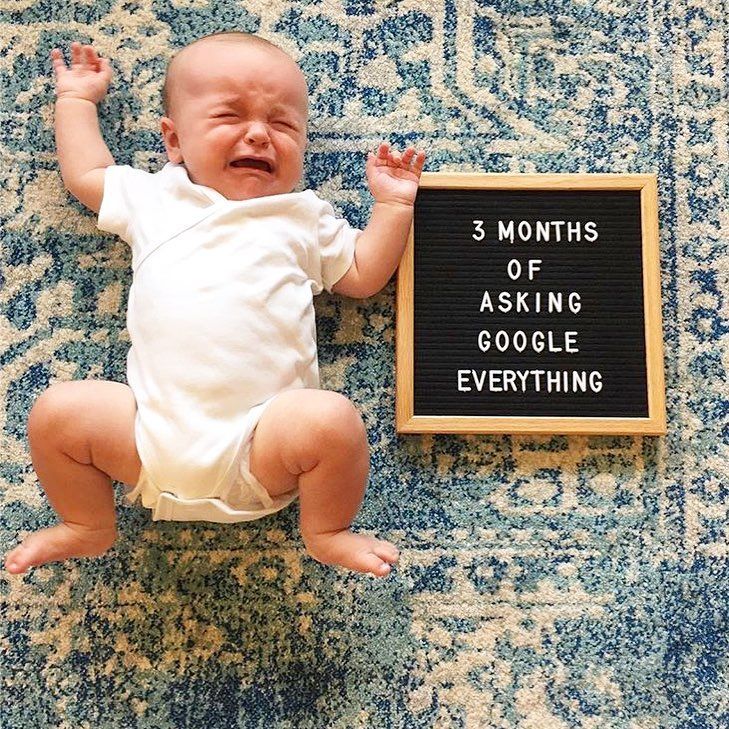 Sleep in comfortable nursing clothing if you are breastfeeding.
Sleep in comfortable nursing clothing if you are breastfeeding.
How many night feeds does a baby need
The smaller the child, the more often he needs to be fed. But over time, the digestive tract gets stronger, and the baby can eat more and endure longer breaks between meals. Below is an approximate number of night feedings, depending on the age of the baby:
1. For breastfed, mixed breastfed and reflux babies:
| Age | Number of night feedings |
| 0-3 months | breastfeeding on demand approximately every 2-3 hours |
| 3-4 months | 2-3 times as required or every 3-6 hours |
| 5-6 months | 1-2 meals |
| 7-9 months | 1, possibly 2 times |
| 10-12 months | sometimes 1 feeding |
| 12+ months | usually without night feedings |
Important!
During growth spurts, your baby should be fed as needed. Such bursts occur approximately at 5, 8, 14, 19, 26, 37 and 46 weeks of life and last about 7 days.
Such bursts occur approximately at 5, 8, 14, 19, 26, 37 and 46 weeks of life and last about 7 days.
How do you know if your baby is ready to give up nighttime meals? After this period, the need for nightly meals depends on the pace of development, individual needs and the health of the child. If the baby was born prematurely or is not gaining weight well, experts recommend waking him up 3.5-4 hours after the previous feeding and offering the breast. nine0003
Advice
If you're not sure if your baby is ready to stop feeding at night, talk to your doctor. The specialist will help you understand and make the right decision based on the physical indicators of your child.
If the baby is healthy and has a good weight, somewhere between 4 and 6 months old, he will begin to get enough calories during the day so that he does not need to feed at night. In breastfed children, this process may be a little slower - up to 6–10 months [2].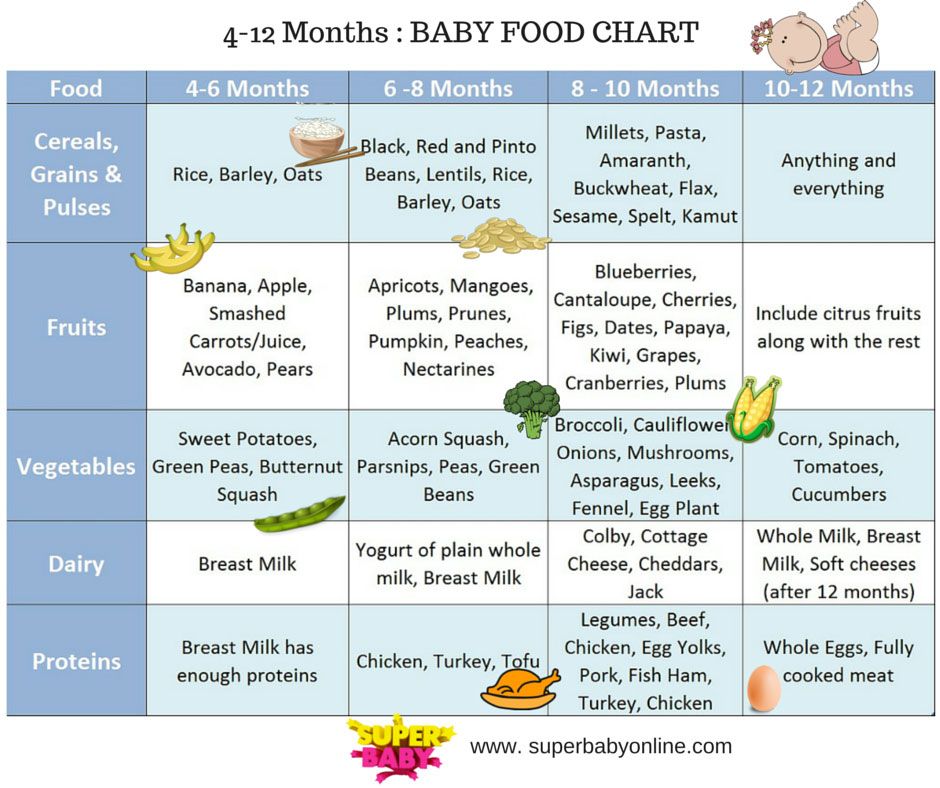 nine0003
nine0003
It is also important to take into account that the refusal of nighttime "snacking" occurs gradually: there are very few cases when a child stops eating at night and immediately starts sleeping 5-6 hours in a row. Usually, babies who are used to eating several times a night wake up out of habit, and it will take time to change this routine. First, the baby will ask for food half an hour later than usual, then an hour, a little later - two, and so on. Step by step, over several weeks, night sleep reaches 6-7 hours in a row. This joyful moment can come at 4 months or closer to 12 months: all babies are unique, and it's not scary or unusual for an infant to sleep much longer without food, while an older child keeps waking up to eat. nine0003
Advice
Dentists recommend abolishing nighttime feedings for children older than one year, as food leftovers in the mouth can damage baby teeth. This risk is minimal when breastfeeding.
Also, remember that your child has many other important needs. Perhaps he wakes up and calls you, not so much for food, but for comfort and closeness. What could be more reassuring and safer than the caring hands of parents who feed and cradle? feedings. nine0003
Perhaps he wakes up and calls you, not so much for food, but for comfort and closeness. What could be more reassuring and safer than the caring hands of parents who feed and cradle? feedings. nine0003
How to wean a child from night feeding: expert advice
Many parents are interested in how to properly wean a baby from eating at night so that it does not become a lot of stress for him. Especially if the baby stubbornly refuses to give up night feeding.
- Start the weaning process slowly and gradually. Slowly reduce your nightly breastfeeding time or give your baby less milk (mixture if formula-fed) from a sippy cup. Try to extend the intervals between
Important!
Under no circumstances should the issue of night feedings be turned into a battlefield. The “cry - stop - wean” method loosens the baby’s nervous system and can provoke severe stress.
- Make sure your child eats well during the day.
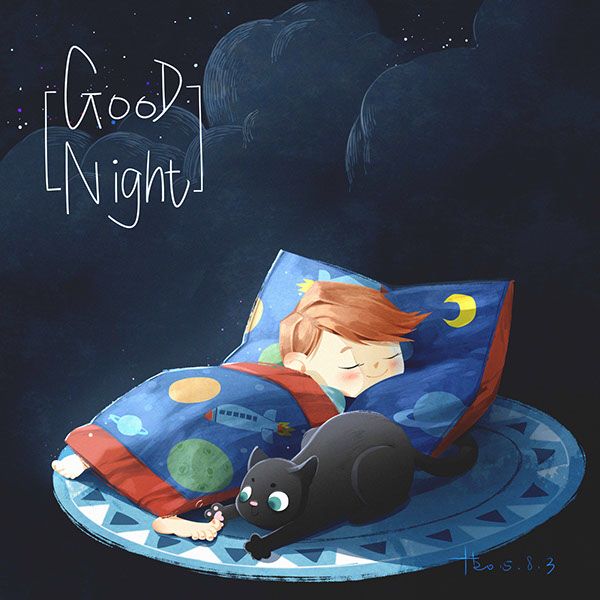 Babies become more active as they get older, and if they get carried away playing or walking, they may skip meals or not eat enough and then try to make up for it at night. Therefore, take scheduled breaks during the day for "silent feeding" in a place where nothing will distract the crumbs from eating. nine0020
Babies become more active as they get older, and if they get carried away playing or walking, they may skip meals or not eat enough and then try to make up for it at night. Therefore, take scheduled breaks during the day for "silent feeding" in a place where nothing will distract the crumbs from eating. nine0020
Advice
If you're not sure if your child is eating enough, check their height by weighing them at the doctor's office.
- Try feeding your baby before bed. If a child goes to bed with a full tummy, they are less likely to wake up hungry in the middle of the night.
- Ask dad to get up at night with the baby. If an awakened baby hears your smell or the aroma of breast milk, this can provoke his appetite, even if the baby did not wake up because of hunger. If you sleep in the same room, it's best to move the crib to dad's side. nine0020
- Phase out feedings one at a time. When the baby wakes up to eat at night, go to him and reassure him, gently but firmly explain that now is the time to sleep, not eat.
 At the same time, pat and stroke the child on the back or tummy, but do not pick him up. Even if the baby does not yet understand your words, he gradually catches the meaning, and your presence and attention will be soothing to him.
At the same time, pat and stroke the child on the back or tummy, but do not pick him up. Even if the baby does not yet understand your words, he gradually catches the meaning, and your presence and attention will be soothing to him. - Try giving your baby water to drink. Babies may wake up at night not from hunger, but from thirst, especially in hot weather or in a room with dry air. If after half an hour the baby wakes up again, feed him, and if not, then he is full and satisfied. nine0020
- If the baby has been crying inconsolably when stopping night feeds for several days in a row, stop the attempt and return to your normal routine for a while. Let the baby calm down and start weaning him again in a week or two.
- Do not stop night feedings during the transition period. For example, when you are going to return to work or go on vacation without a baby. If your baby sees less of you during the day, try to hug and interact with him more in your free time. It is necessary that he clearly feels your connection and care, then the baby is less likely to seek solace in the middle of the night.
 nine0020
nine0020 - If the baby continues to require nighttime feeding, try to create conditions in which he does not want to eat. An excellent opportunity appears at 8-9 months, when the baby is already confidently eating complementary foods. To do this, move the usual bowl of porridge to the evening: this way the child stays full longer and may not ask for an extra portion of food at night.
See also: Introduction of complementary foods to an infant
Advice nine0039
Do not give your baby new foods at night, introduce them only in the morning. Otherwise, you run the risk of observing the reaction to unfamiliar complementary foods instead of sleep. Also, do not give your child meat at night, it is hard to digest, can cause discomfort in the stomach and restless sleep.
Also keep in mind that the decision to not feed at night depends in part on how it affects you. If you enjoy breastfeeding or drinking from a cup at night, there is no reason to stop: at a certain point, the baby will stop asking for food on its own. But if you feel that lack of sleep prevents you from living and enjoying motherhood, and the baby is already physically ready for change, it's time to try switching to a daily routine. In any case, you should do what is best for you and your family. nine0003
But if you feel that lack of sleep prevents you from living and enjoying motherhood, and the baby is already physically ready for change, it's time to try switching to a daily routine. In any case, you should do what is best for you and your family. nine0003
FAQ
1. How often should a newborn be fed?
A newborn needs to be fed every 2-3 hours, i.e. 10-12 times a day. Further, the intervals between feedings gradually increase to 3-6 hours, and the child gets the opportunity to sleep all night.
2. How much should a child eat per day?
The daily "portion" of food for the baby depends on his age and weight. From 10 days to 1.5 months, the baby needs such an amount of food, the weight of which is approximately 1/5 of the child's body weight. From 1.5 to 4 months - 1/6 of the baby's weight, from 4 to 6 months - 1/7, from 6 to 8 months - 1/8, from 8 to 12 months - 1/9.
3. What happens if you don't stop night feedings?
Most likely, the child will eventually refuse them himself.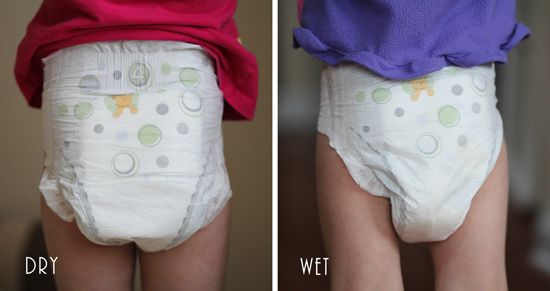 But some pediatricians, notably Richard Ferber [1], warn that unnecessary nighttime feedings can cause sleep problems. Also, food leftovers after late “snacks” can provoke the development of caries in milk teeth.
But some pediatricians, notably Richard Ferber [1], warn that unnecessary nighttime feedings can cause sleep problems. Also, food leftovers after late “snacks” can provoke the development of caries in milk teeth.
Sources
-
- Baby sleep training: Night weaning. By Darienne Hosley Stewart | Medically reviewed by Lisa Dana, M.D. nine0020
-
- Night Feedings by Age – When Do You Try Night Weaning? By Nicole Johnson, Founder and Lead Sleep Consultant in Sleep Training.
Related Articles
Child Development by Month
Latest Reviews
Average Customer Rating
2 customer ratings
Snapshot of community ratings
- five 2 nine0020
- four 0
- 3 0
- 2 0
- 1 0
Recommended Articles
0-6 months
Article
How to increase the amount of breast milk?
0 reviews
Breast milk is the healthiest and healthiest food for a baby. It contains all the substances necessary for a small organism. nine0143
It contains all the substances necessary for a small organism. nine0143
0-6 months
Article
How to measure the temperature of a newborn: 3 ways
0 reviews
A newly born little man is still in the process of thermoregulation. Therefore, the temperature norms for such a baby will differ not only from the norms of an adult, but even from those of a one-year-old child. During this period, a small "lump" causes a lot of worries and worries in the mother. Any change can cause anxiety, and therefore mothers should know how to measure the temperature of a newborn. nine0003
0-6 months
Article
What fruits can a nursing mother: nutrition while breastfeeding
Fruit is one of the most important sources of vitamins for humans.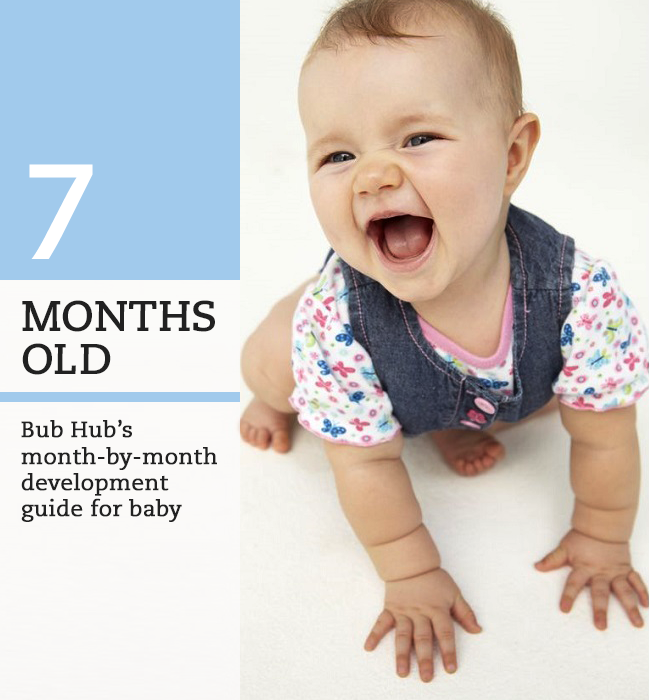 Both mother and child need them. What fruits with HB can a nursing mother? And is it true that strawberries and citrus fruits should be excluded from the daily diet? We will try to answer these in our article.
Both mother and child need them. What fruits with HB can a nursing mother? And is it true that strawberries and citrus fruits should be excluded from the daily diet? We will try to answer these in our article.
0-6 months
Article nine0003
Smoking while breastfeeding (HB): the impact on the baby
0 reviews
Tips and position on smoking while breastfeeding / smoking while breastfeeding from well-known international and Ukrainian pediatricians, WHO and La Leche League - a public organization to support breastfeeding women.
0-6 months
Article
Expressing Breast Milk: Top 5 Tips nine0039
0 reviews
The most natural and healthy food for a baby is and has always been breast milk.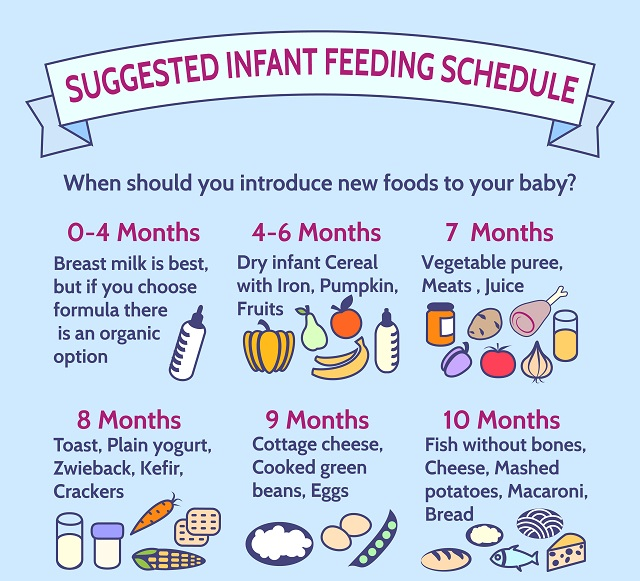 Its composition and properties are ideal for a small organism and not a single, even the most perfect artificial infant formula can replace this diet.
Its composition and properties are ideal for a small organism and not a single, even the most perfect artificial infant formula can replace this diet.
0-6 months
Article
Mastitis (breast inflammation): treatment, causes and symptoms nine0039
0 reviews
Breastfeeding is not always easy and women often face the problem of breast inflammation. Why does mastitis develop and how to recognize the first symptoms? And also let's figure out what can be done to prevent the disease.
0-6 months
Article
The correct start of breastfeeding is the key to a long and trouble-free lactation nine0039
Breastfeeding is a skill that absolutely every woman possesses at the level of reflexes. The problems faced by modern young mothers are much more often social and informational in nature, rather than physiological. Even a minimum of truthful information and self-confidence will help you start breastfeeding correctly and continue it for as long as your baby needs.
Even a minimum of truthful information and self-confidence will help you start breastfeeding correctly and continue it for as long as your baby needs.
0-6 months
Article nine0003
How to remove the stomach after childbirth: TOP 8 tips
0 reviews
A few proven methods to trim the belly after childbirth . Follow simple recommendations, and soon you will return to your figure, which was before pregnancy.
0-6 months
Article
Alcohol while breastfeeding (LB): can I drink it? nine0039
0 reviews
Breastfeeding is a process that has an extraordinary impact on the development and health of the baby. Since the relationship between the child and the mother is continuous, everything that has entered the body of a nursing mother will immediately end up in the baby's body.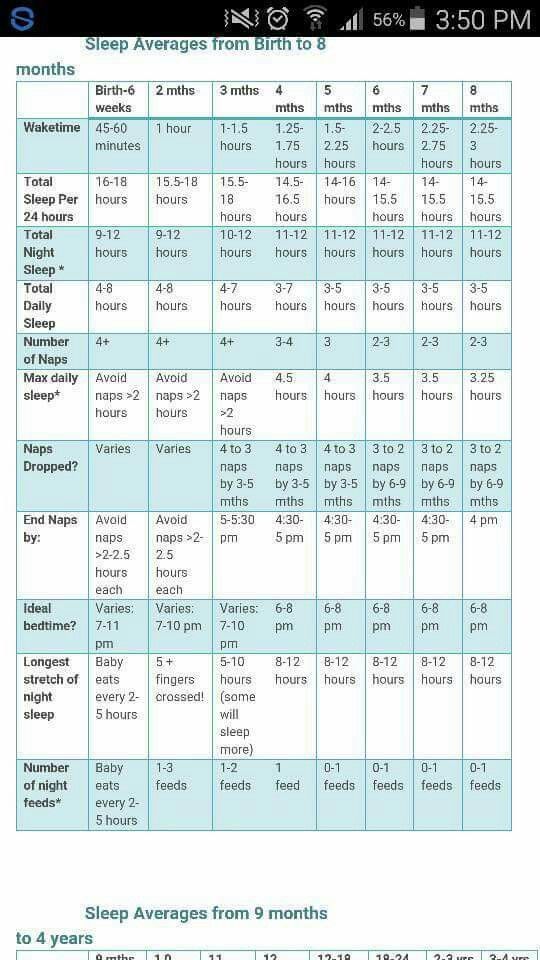
Pregnancy
Article
breast milk oligosaccharides
Human milk oligosaccharides are one of the most enigmatic components whose functions scientists have recently discovered. Find out what oligosaccharides are and what benefits they bring to your baby. nine0003
0-6 months
Article
Infant diet
A baby's daily regimen and, first of all, his feeding regimen is the foundation of his health. How often should a baby be fed? How do you know if he has enough milk?
0-6 months
Article
Discharge after childbirth, or lochia: what a young mother needs to know nine0039
0 reviews
Lochia is a natural postpartum discharge. They appear immediately after the placenta has passed and last for several weeks until the lining of the uterus is completely healed. What do lochia look like at different stages, what is the norm, and in what cases should you sound the alarm? And is it possible to speed up postpartum recovery?
What do lochia look like at different stages, what is the norm, and in what cases should you sound the alarm? And is it possible to speed up postpartum recovery?
0-6 months
Article nine0003
Hair loss during breastfeeding (HB): what to do?
0 reviews
The problem of hair loss during lactation is quite common. This process is associated with a number of factors and is generally considered natural. Why does hair fall out after childbirth and how can I get rid of this problem? More on this later in the article.
0-6 months
Article nine0003
Artificial feeding of newborns: some tips
0 reviews
Mother's milk is the main source from which the tiny body receives nutrients and builds the foundation of immunity. Therefore, breastfeeding is recommended by all pediatricians and neonatologists. This strengthens the bond with the mother and the immune system of the baby. However, it often happens that a young mother refuses breastfeeding. The reason for this may be a shortage or lack of milk or a doctor's recommendation. nine0003
Therefore, breastfeeding is recommended by all pediatricians and neonatologists. This strengthens the bond with the mother and the immune system of the baby. However, it often happens that a young mother refuses breastfeeding. The reason for this may be a shortage or lack of milk or a doctor's recommendation. nine0003
0-6 months
Article
Constipation after childbirth: what to do?
Intestinal dysfunction after childbirth is a problem that all new mothers face. This is not a pathology, but a completely normal, understandable and temporary state of the female body. Why there is constipation after childbirth, when bowel function is restored and what to do to eliminate discomfort - more on this later in the article.
nine0002 0-6 monthsArticle
Breastfeeding Pregnancy (HB): First Signs
0 reviews
Is it possible to get pregnant during lactation? There is an opinion that this is impossible.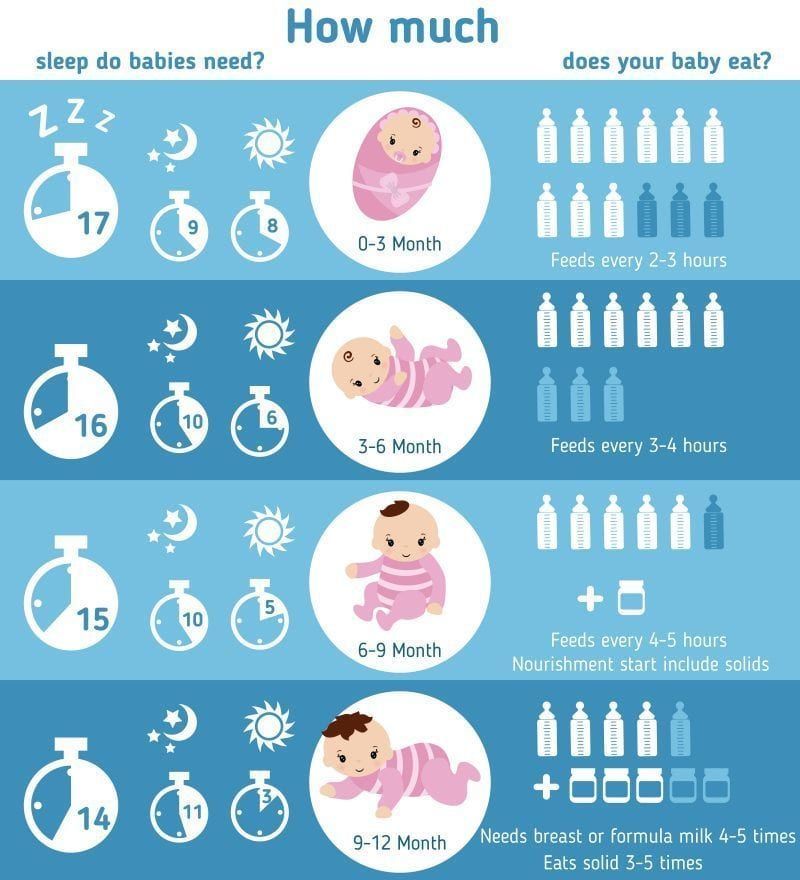 However, in practice, such cases are not uncommon. How to recognize the first signs of pregnancy while breastfeeding and what are the risks? More on this later in the article. nine0003
However, in practice, such cases are not uncommon. How to recognize the first signs of pregnancy while breastfeeding and what are the risks? More on this later in the article. nine0003
0-6 months
Article
How can I help my baby latch onto the nipple?
The key to a successful start to breastfeeding is the correct latch on of the nipple. Follow tips to help your baby latch onto the nipple and floor properly
0-6 months
Article
When can you have sex after giving birth? nine0039
0 reviews
The resumption of intimate relationships after childbirth is an ambiguous question. On the one hand, after such a long abstinence, you want to have sex as soon as possible, on the other hand, there are a number of nuances that prevent this. When you can have sex after childbirth and what precautions you should take - read further in the article.
When you can have sex after childbirth and what precautions you should take - read further in the article.
0-6 months
Article nine0003
Breastfeeding: the first steps after childbirth
Mothers usually start breastfeeding their newborn while still in the hospital. The physiology of the infant is well adapted to this. During the first feeding, the baby receives colostrum, which contains antibodies that fight infections.
Join the Club
We know that being a mother is not only unlimited happiness, but also a great responsibility. We will help you! nine0003
Register
Still haven't found what you need?
Try our new search.
Search
90,000 night feeding to what age - how much to wean a child from night feeding10/29/2016
385731
412
Feeding and dream
9000 --18 monthsArticle
Babysleep
0003
The BabySleep Team
Sleep Counselors, Doctors, Psychologists, Breastfeeding Counselors
Everyone knows that frequent nighttime awakenings when a newborn needs to be comforted or fed is a natural part of motherhood. How pleasant it is to hug a child in the silence of the night and attach it to your chest! But one day there comes a moment when the uninterrupted sleep of the baby and mother becomes more important than nightly breastfeeding.
How pleasant it is to hug a child in the silence of the night and attach it to your chest! But one day there comes a moment when the uninterrupted sleep of the baby and mother becomes more important than nightly breastfeeding.
Child crisis calendar
Night feeds: until what age? nine0013
Many parents are interested in night feedings: until what age should they be kept? When should a child be weaned from night feeding? In this article, we present the opinion of our American colleagues on breastfeeding. Their recommendations may need tweaking, but it's certainly an interesting take on the issue.
BabySleep considers it necessary to emphasize that reducing nighttime feedings at any age does not in any way mean a complete rejection of breastfeeding, unless the mother has such an intention. This is just a reduction in the number of attachments to the chest during a night's sleep. The mother can still continue breastfeeding even if the number of nightly feedings is reduced. nine0003
nine0003
It is also important to remember that breastfeeding is not only a process of satiating the child, but also a time of physical and emotional closeness between mother and baby. In some situations, this factor is of paramount importance and it is not worth reducing the number of feedings.
What do doctors say?
Many children continue to wake up for night feedings from one to several times a night, although, due to their age, they are already able to sleep for a long period of time without waking up. The reason is that they are used to getting calories at night. Very often, nighttime awakenings and the need to breastfeed in order to fall asleep again are caused by an association with falling asleep. This means that when you wake up at the end of your sleep cycle (every 40–90 minutes), the baby simply cannot fall asleep again without sucking, even if at that moment he is not hungry. Some children only need to take a few sips to calm down, and someone eats, consuming calories that the body does not need at that moment.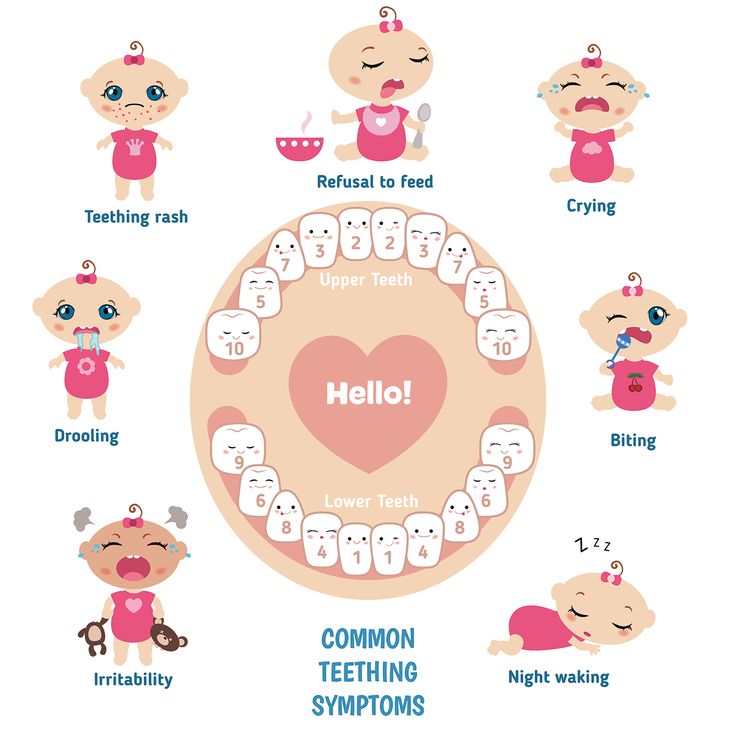
When the baby wakes up to satisfy his hunger, he actively sucks and swallows for at least 5 minutes or drinks more than 60 ml. milk from a bottle. If there is an association to fall asleep, or if the baby needs to breastfeed to calm down, the baby sucks out only a little milk. If the baby is really hungry at night, it is not recommended to drastically reduce the number of nightly feedings. If the child is hungry, he must be fed! nine0519
How many nightly feedings does a child need?
Before cutting down on a baby's nighttime feedings, the mother should make sure that the baby is ready for it and that her expectations are realistic. If there are no problems with lactation, the baby is healthy, calm, eats well during the day and is gaining weight, you can simply use the table as a guide, which indicates the number of nightly feedings recommended by American baby sleep experts.
Talk to your doctor before starting to cut down on nightly breastfeeding. It is also important to consider the age of the child depending on the EDD (estimated date of birth). If the baby eats at night more often than indicated in the table, but sleeps well, and it suits you, there is no problem. If your baby is eating less often, but your pediatrician is happy with how he is growing and gaining weight, you are doing great too! nine0003
It is also important to consider the age of the child depending on the EDD (estimated date of birth). If the baby eats at night more often than indicated in the table, but sleeps well, and it suits you, there is no problem. If your baby is eating less often, but your pediatrician is happy with how he is growing and gaining weight, you are doing great too! nine0003
The recommendations in this article are for those mothers who are worried about the fragmented sleep of the child due to the fact that the baby often eats at night.
Until what age to continue night feeding?
The nutritional needs of children differ, but you can focus on the average data from the table:
When should a child be weaned from night feedings?
A child's readiness to reduce nighttime feedings can be tested by answering the following questions:
- Is your baby 6 months old or older and eating solid foods well?
- Was the baby born at term with a normal weight?
- Does the baby need night feedings, rather to calm down than to satisfy the feeling of hunger (applications are very short)?
- Feeding for a baby is an association for falling asleep, does he not know how to calm down and fall asleep himself during daytime and nighttime dreams, does he often wake up at night?
- Is co-sleeping a forced measure for you because of the association for the baby to fall asleep (see paragraph 4)? nine0020
- Do all family members lack sleep and feel constantly tired (as a result of points 4 and 5)?
- Are night feedings erratic (time and number of awakenings vary each night)?
- Does your child eat more at night than during the day?
- In the past, has the baby been able to sleep for three or more days in a row for long periods of time without feeding, or with one feeding between 22:00 and 24:00 (not during illness, etc.
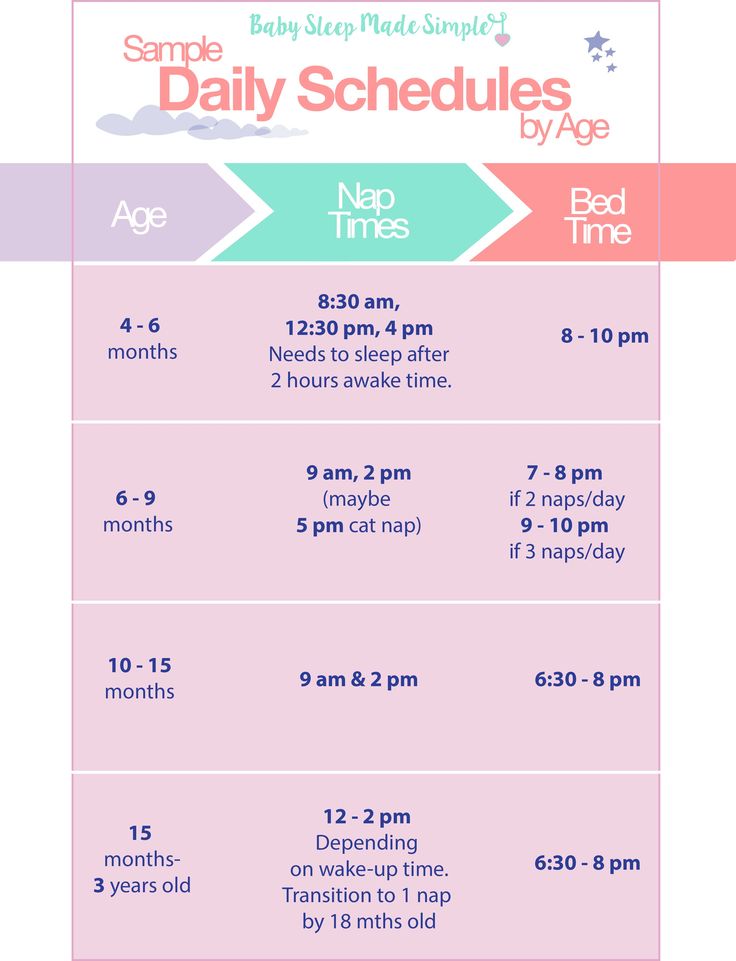 )?
)? - Does the baby eat once a night - at 3-4 in the morning - and constantly refuses morning feeding? nine0020
If the majority of answers are yes, this shows the child's readiness to reduce the number of nightly attachments.
Reduced night feedings. Where to begin?
If you can't tell exactly what time and how long your child eats at night, watch him for 2-3 nights. When you see patterns in nightly breastfeeding, you can draw up a work plan and gradually wean the baby from breastfeeding.
- Start work with feedings in the first hours of sleep, when the baby has not yet had time to get hungry.
- If nighttime breastfeeding is associated with falling asleep for your baby, separate breastfeeding from the process of falling asleep—feeding before bed to soothe and relax, and then falling asleep without suckling.
- Reduce the time your baby spends at the breast at night, or reduce the amount of milk in the bottle.
